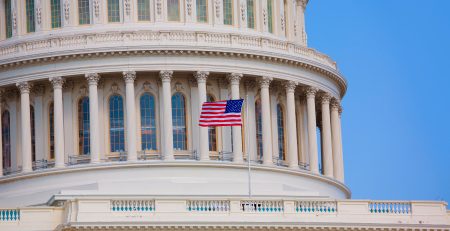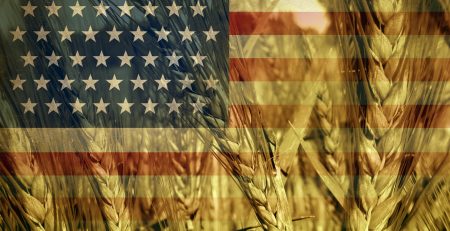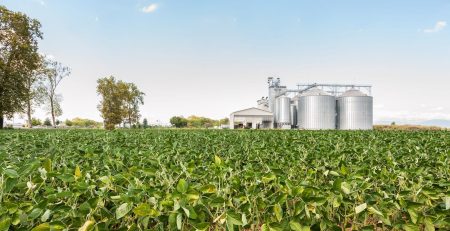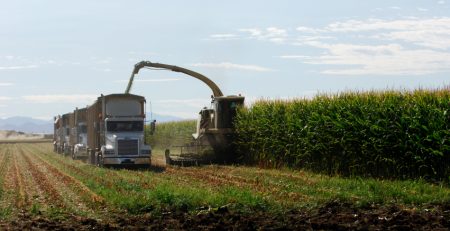Farmers Sue to Reinstate Obama Lawsuit Rule Trump Killed
Last year, rural Americans who believed Donald Trump’s promises to help small farmers played a key role in putting him in the White House. Since then, the Republican administration’s Department of Agriculture moved to block an Obama-era rule that provided those farmers with a powerful tool to fight anti-competitive conduct by big agriculture. So now some of those farmers have sued.
The rule in question would have helped independent farmers, such as poultry growers, to sue massive, vertically integrated meat companies that control every step of the production process. The American chicken farmer largely exists at the whim of mass producers that, under a contract, give them feed and chicks to raise in exchange for pay. Under current law, if one of those farmers has a gripe because, for example, he or she believes unhealthy chicks were sent as retaliation for a complaint about the contract, courts require a showing that the whole market—and not just the lone farmer—was hurt by the company’s actions.
Under the Obama-era rule, which had yet to take effect, that standard would have changed to require only a showing of harm to the farmer claiming it. Many small farmers and groups that represent them, such as the National Farmers Union, Rural Advancement Foundation International-USA, Farm Aid, R-CALF USA, the U.S. Cattlemen’s Association and the Organization for Competitive Markets, largely supported the rule proposed by the Democratic administration. They argued that the rules would help level the playing field, making it easier for a small farmer to take on international corporations.
Industry lobbying groups, such as the National Chicken Council and the North American Meat Institute, opposed the Obama rule, citing concerns that corporations would face more litigation and thus trigger higher prices for consumers.
In October, the USDA and Secretary of Agriculture Sonny Perdue decided not to move forward with the Obama rule, leaving the existing, higher bar in place. The petition by the farmers was filed Dec. 14 with the U.S. Court of Appeals in St. Louis.
“If they won’t support us, we’ll see if we can get somebody who will”
“I’m quite disappointed in the fact that the president hasn’t followed through on promises to help the little guy, including family farmers,” said Mike Weaver, a poultry farmer in West Virginia, president of the Organization for Competitive Markets and self-proclaimed Trump voter. “If it takes legal action to accomplish things that should be done otherwise, then that’s what we’re going to do.”
His organization is being represented by the Democracy Forward Foundation, a nonpartisan group that has sued a number of federal agencies this year, including the Department of Defense, the Office of Management and Budget and the Department of Education.
“One of the reasons we’re really interested in this case is because it has such tremendous and direct impact on small and independent farmers to compete in the market,” said Aman George, director of legal policy at Democracy Forward. The litigation claims the withdrawal was illegal because it didn’t establish a clear record as to why it was done and was thus arbitrary and capricious. Plus, because the Obama rule was promulgated as a result of the 2008 Farm Bill, the decision to toss the regulation is unlawful, according to the complaint. The USDA declined to comment.
Such a lawsuit won’t be a slam dunk. “In terms of the prospects for success, well, there’s no guarantee one way or another,” said Cary Coglianese, a law professor at the University of Pennsylvania and director of the Penn Program on Regulation. Neither theory, he said, points decisively in one direction or the other. “Both are spongy legal doctrines.”
If anything, Coglianese said, he’d expect the court to rule in the government’s favor. “There’s a general degree of deference to the agencies,” he said.
The better bet is probably a changed political landscape. “They definitely should be looking to mobilizing with regard to Congressional elections,” Coglianese said.
Weaver isn’t ready to commit to changing his political leanings, but he’s considering it. “If we can’t get the support from the Congress or the administration that we think farmers deserve, it’s certainly going to affect the way we vote,” he said. “If they won’t support us, we’ll see if we can get somebody who will.”
This article was first published on https://www.qtwebhostdemo.com.










